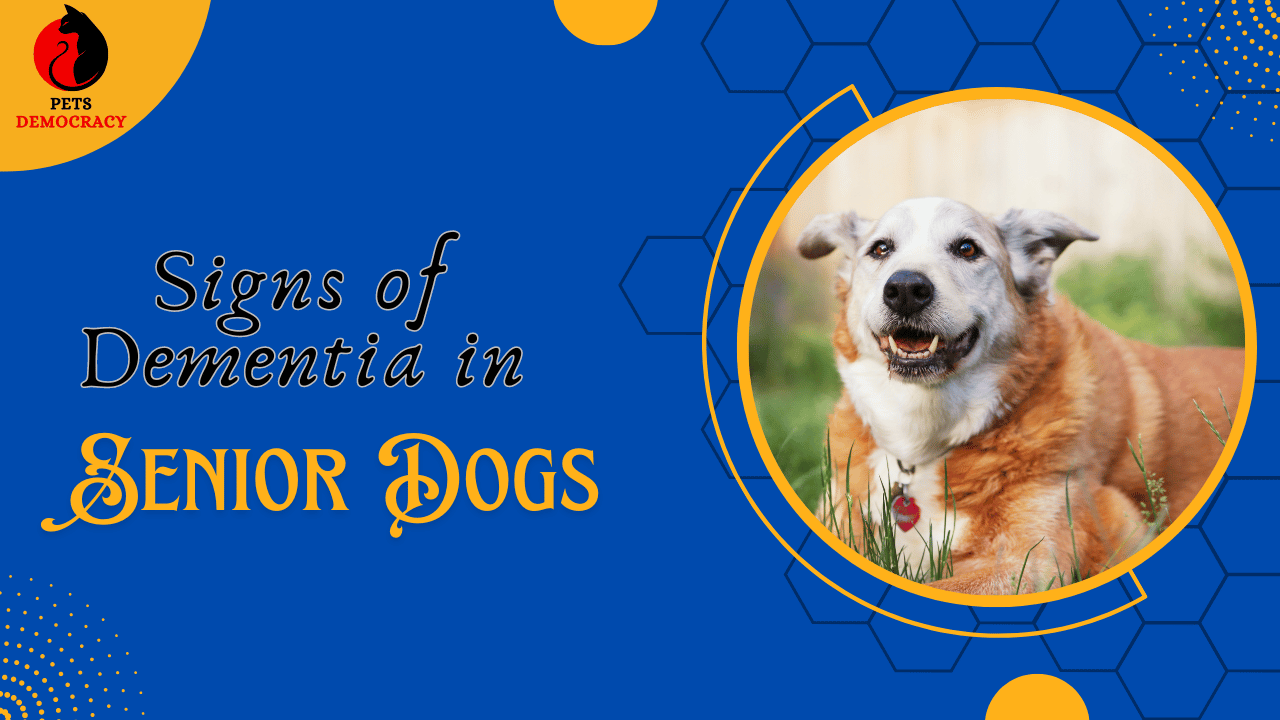
In this comprehensive guide, we will delve into the symptoms, treatment options, and preventive measures for dementia in senior dogs.
As our beloved canine companions age, they may begin to exhibit changes in behavior and cognitive function that can be alarming to pet owners.
Recognizing the signs of dementia in senior dogs is crucial for early intervention and improving their quality of life.
What is Dementia in Senior Dogs
Canine dementia, also known as Canine Cognitive Dysfunction (CCD), is a condition similar to Alzheimer’s disease in humans.
It primarily affects senior dogs, typically those over the age of ten, and leads to a decline in cognitive functions such as memory, learning, and awareness.
Understanding the signs of dementia in senior dogs can help pet owners seek appropriate care and support for their aging pets.
Signs of Dementia in Senior Dogs
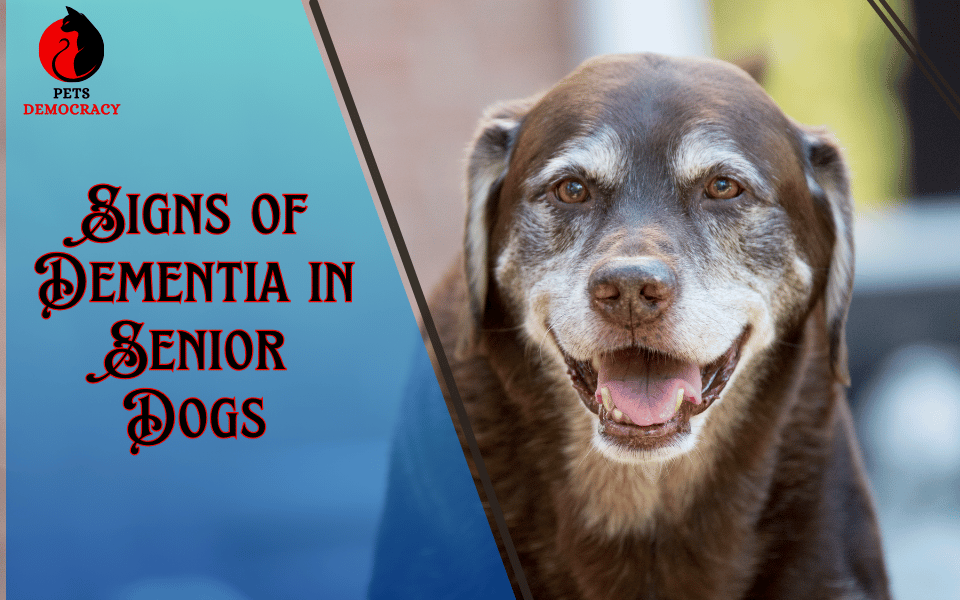
Recognizing the signs of dementia in senior dogs early can make a significant difference in their quality of life. The following are typical signs to be aware of:
1. Disorientation and Confusion
One of the most noticeable signs of dementia in senior dogs is disorientation and confusion. Your dog may get lost in familiar places, have trouble finding their way around the house, or appear confused about where they are.
2. Changes in Sleep Patterns
Senior dogs with dementia often experience changes in their sleep patterns. They may become restless at night, have difficulty sleeping, or sleep more during the day.
3. Decreased Interaction
A decline in social interactions is another common sign of dementia in senior dogs. Your dog may show less interest in playing, interacting with family members, or greeting visitors.
4. House Training Issues
Dogs with dementia may forget their house training and have accidents indoors, even if they were previously well-trained. This can be a frustrating and concerning symptom for pet owners.
5. Repetitive Behaviors
Repetitive behaviors, such as pacing, circling, or barking without apparent reason, can indicate dementia in senior dogs. These behaviors often occur due to confusion and anxiety.
Diagnosis of Dementia in Senior Dogs
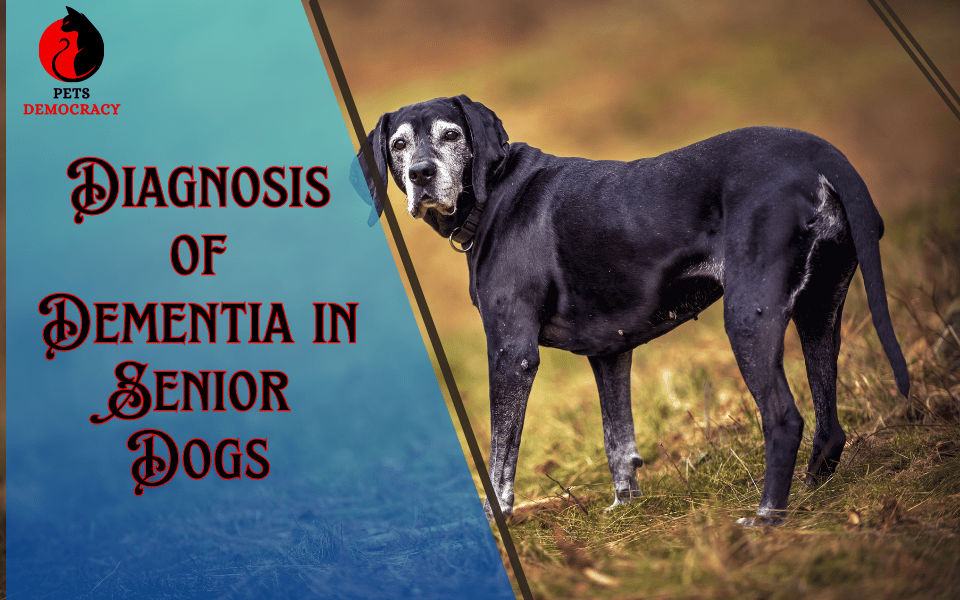
If you notice any of the signs of dementia in senior dogs, it is essential to consult with your veterinarian.
A thorough examination and assessment are necessary to rule out other medical conditions that could cause similar symptoms.
Your veterinarian may conduct blood tests, neurological exams, and behavioral assessments to diagnose dementia.
Dementia in Senior Dogs Treatment Options
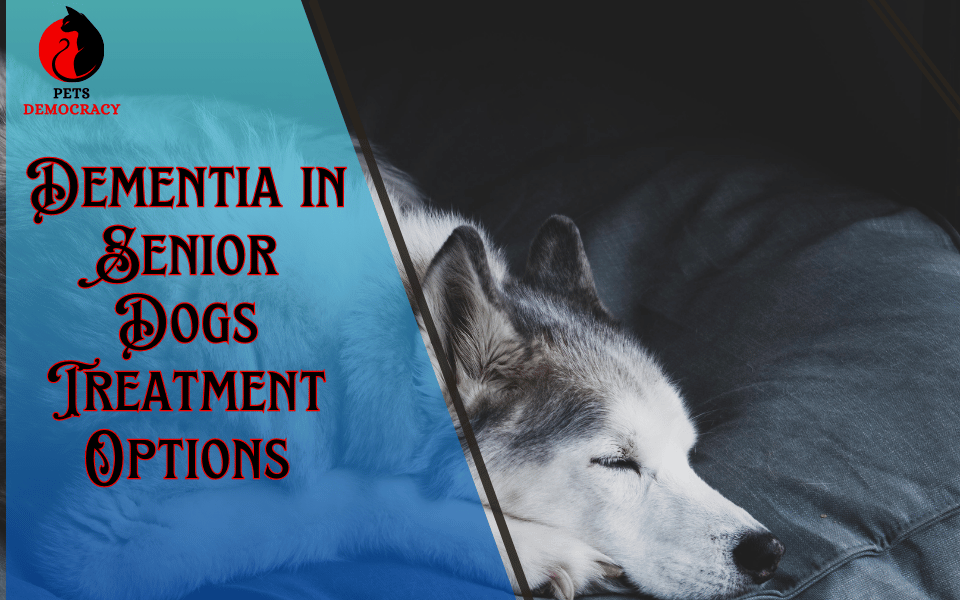
While there is no cure for dementia in senior dogs, several treatment options can help manage the symptoms and improve your dog’s quality of life.
1. Medications
Certain medications can help alleviate the symptoms of dementia in senior dogs. Your veterinarian may prescribe drugs to reduce anxiety, improve cognitive function, and enhance your dog’s overall well-being.
2. Dietary Supplements
Dietary supplements, such as omega-3 fatty acids, antioxidants, and vitamins, can support brain health and cognitive function in senior dogs. Before beginning any new supplement regimen, speak with your vet.
3. Environmental Enrichment
Providing mental and physical stimulation through environmental enrichment can help slow the progression of dementia. Puzzle toys, interactive games, and regular exercise can keep your dog’s mind active.
4. Consistent Routine
Maintaining a consistent daily routine can help reduce confusion and anxiety in senior dogs with dementia. Regular feeding times, walks, and play sessions can provide a sense of stability.
5. Behavior Modification
Behavior modification techniques, such as positive reinforcement and training, can help manage specific symptoms of dementia in senior dogs. Working with a professional dog trainer or behaviorist can be beneficial.
Preventive Measures for Dementia in Senior Dogs
While it may not be possible to prevent dementia entirely, certain measures can reduce the risk and slow the progression of cognitive decline in senior dogs.
1. Regular Veterinary Check-ups
Regular veterinary check-ups are essential for monitoring your dog’s health and detecting early signs of dementia. Early intervention can make a significant difference in managing the condition.
2. Balanced Diet
Feeding your dog a balanced diet rich in nutrients can support brain health and overall well-being. Consult with your veterinarian to ensure your dog’s diet meets their specific needs.
3. Mental Stimulation
Providing mental stimulation through training, interactive toys, and problem-solving games can keep your dog’s mind active and engaged.
4. Physical Exercise
Regular physical exercise is crucial for maintaining your dog’s physical and mental health. Daily walks, playtime, and activities that challenge your dog’s abilities can be beneficial.
5. Social Interaction
Maintaining social interactions with family members, other pets, and new people can help keep your dog’s social skills sharp and reduce feelings of isolation.
Living with a Dog with Dementia
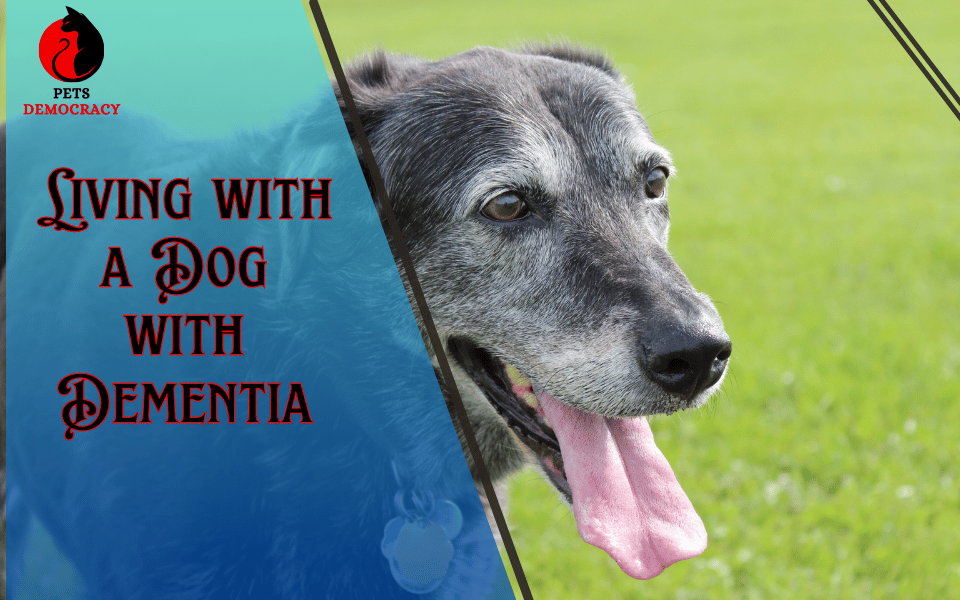
Living with a dog with dementia can be challenging, but with the right care and support, you can help your furry friend live a happy and fulfilling life. Here are some tips for managing the signs of dementia in senior dogs:
1. Patience and Understanding
Patience and understanding are crucial when caring for a dog with dementia. Recognize that their behavior changes are due to the condition and not intentional misbehavior.
2. Safe Environment
Creating a safe and comfortable environment for your dog can help reduce anxiety and confusion. Remove potential hazards and provide a cozy space where they feel secure.
3. Regular Routine
Maintaining a regular routine can provide a sense of stability for your dog. Consistent feeding times, walks, and play sessions can help reduce confusion.
4. Positive Reinforcement
Using positive reinforcement techniques can encourage desired behaviors and help manage symptoms.
5. Professional Support
Seeking support from professionals, such as veterinarians, trainers, and behaviorists, can provide valuable guidance and assistance in managing your dog’s dementia.
FAQs about Signs of Dementia in Senior Dogs
What are the early signs of dementia in senior dogs?
Early signs of dementia in senior dogs include disorientation, changes in sleep patterns, decreased interaction, and house training issues.
Can dementia in senior dogs be treated?
While there is no cure for dementia in senior dogs, treatment options such as medications, dietary supplements, and environmental enrichment can help manage symptoms.
How can I prevent dementia in my senior dog?
Preventive measures for dementia in senior dogs include regular veterinary check-ups, a balanced diet, mental stimulation, physical exercise, and social interaction.
Conclusion
Recognizing the signs of dementia in senior dogs is essential for providing the best care and support for your aging canine companion.
By understanding the symptoms, seeking early diagnosis, and exploring treatment options, you can help improve your dog’s quality of life.
Preventive measures, such as regular veterinary check-ups, a balanced diet, and mental and physical stimulation, can also play a significant role in reducing the risk of dementia in senior dogs.


